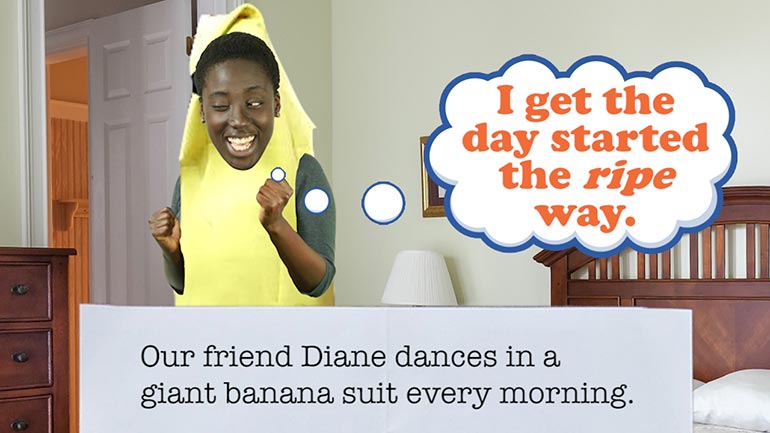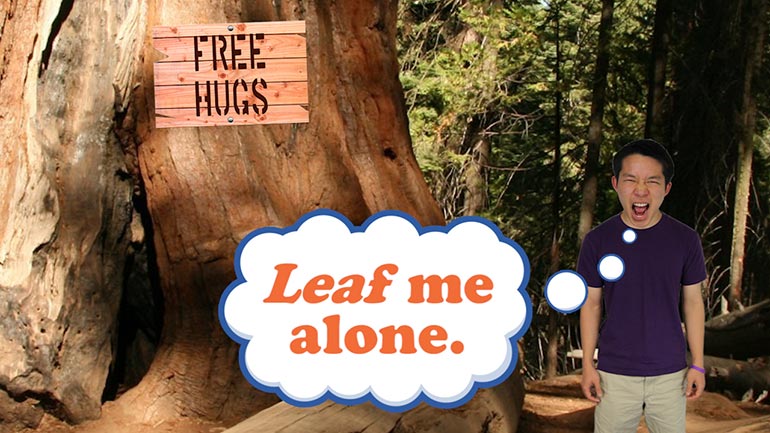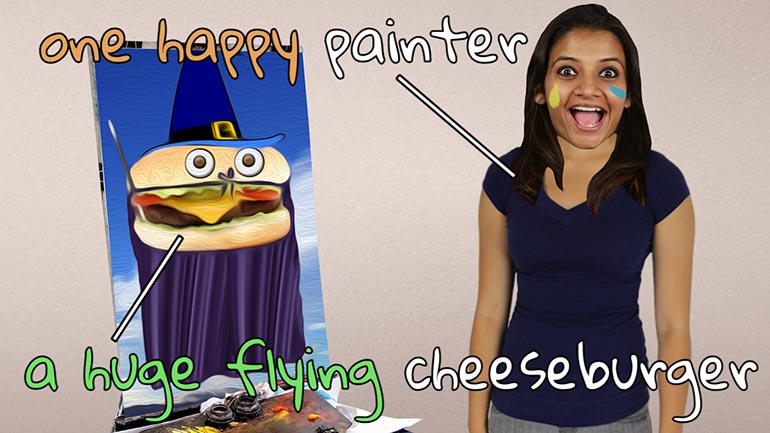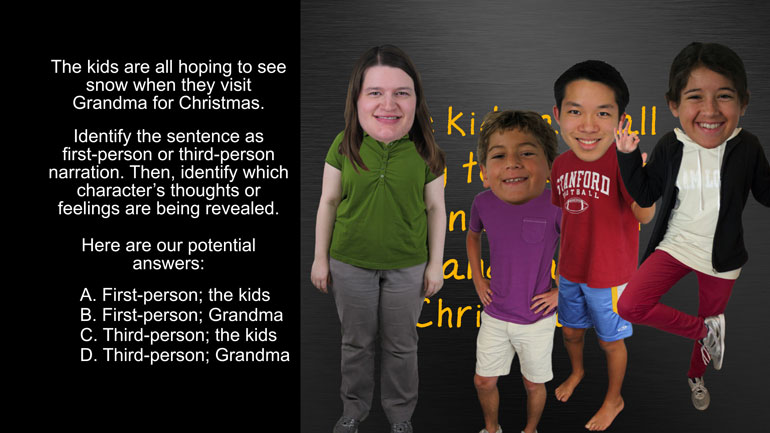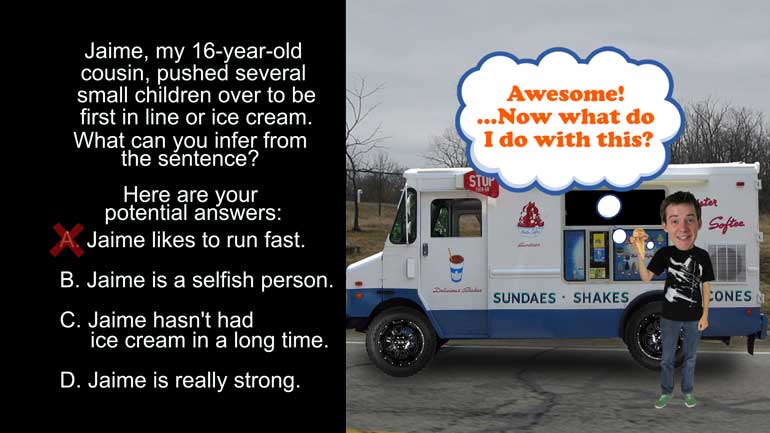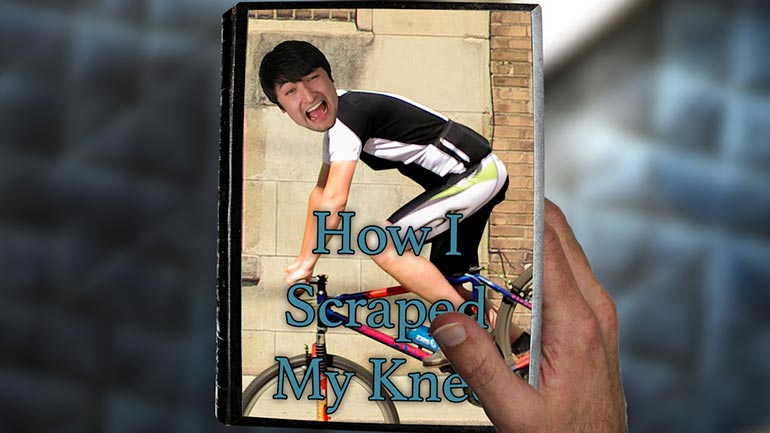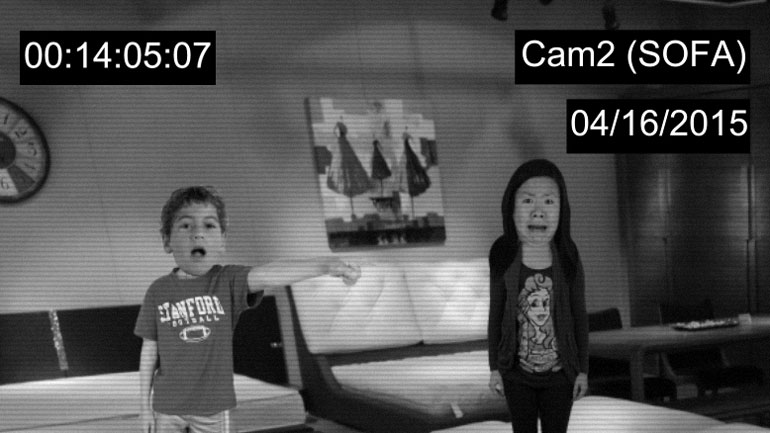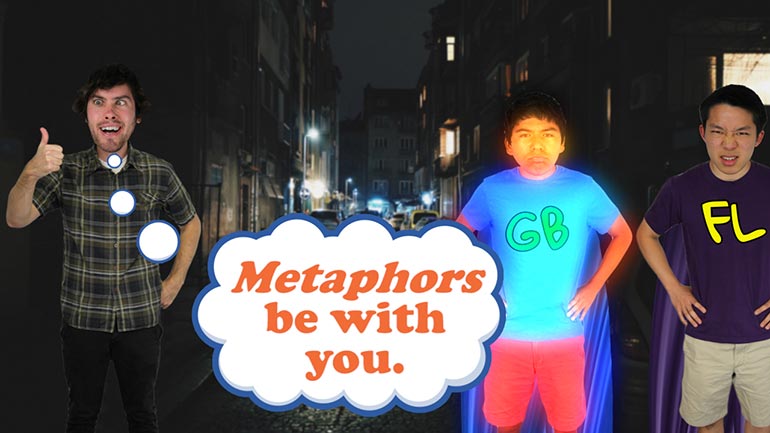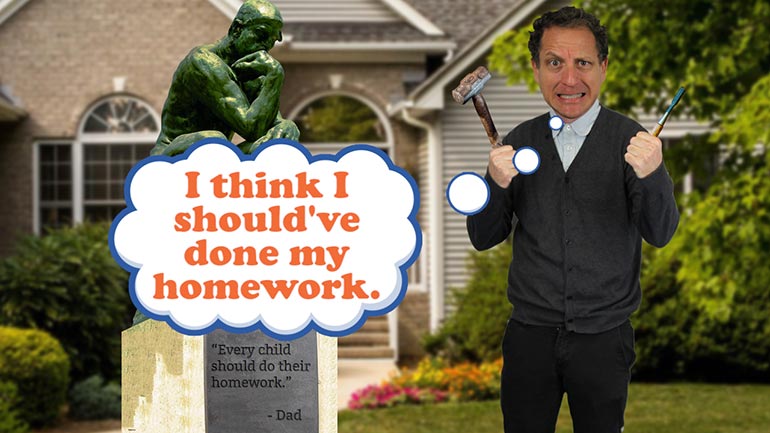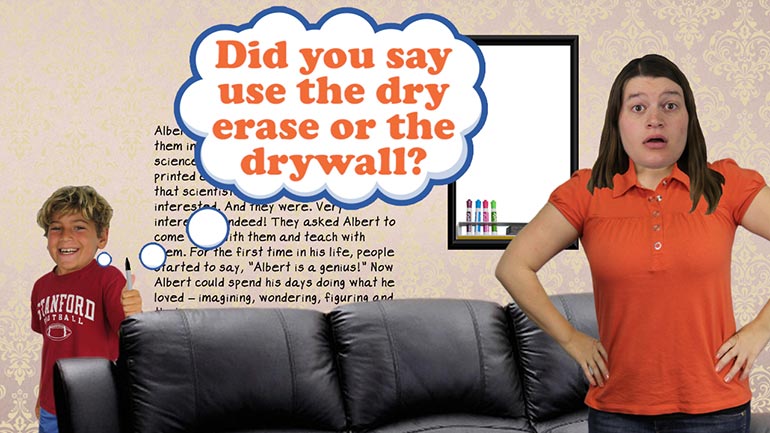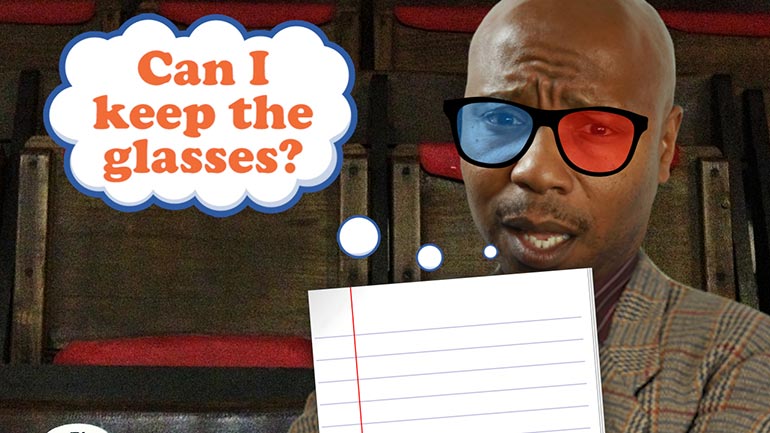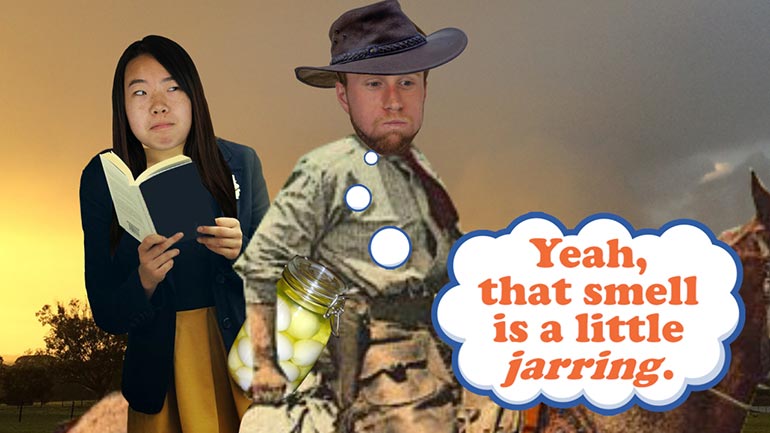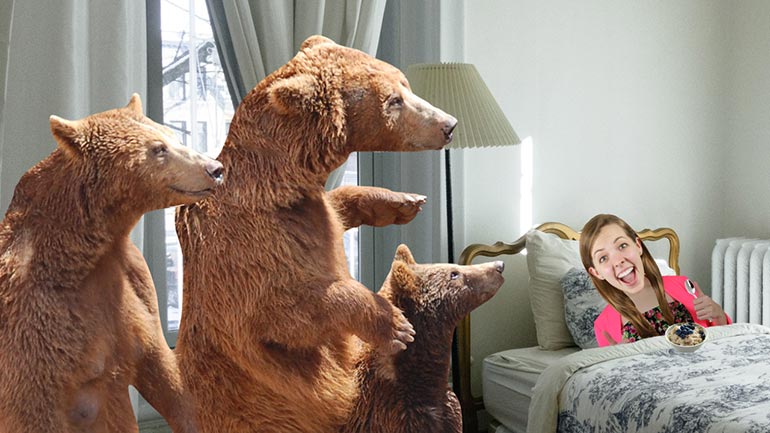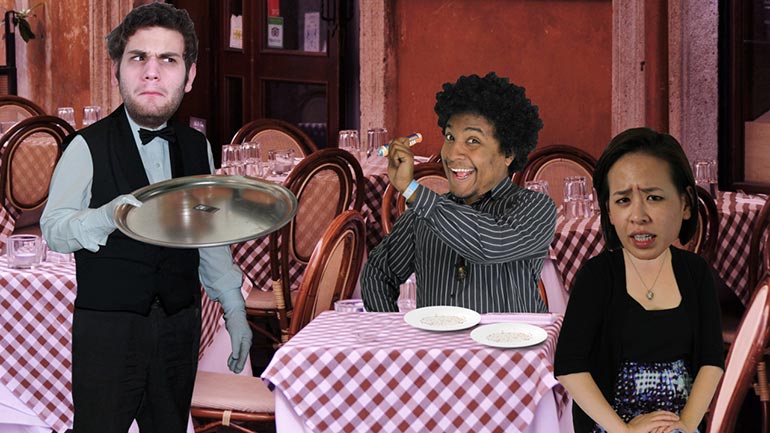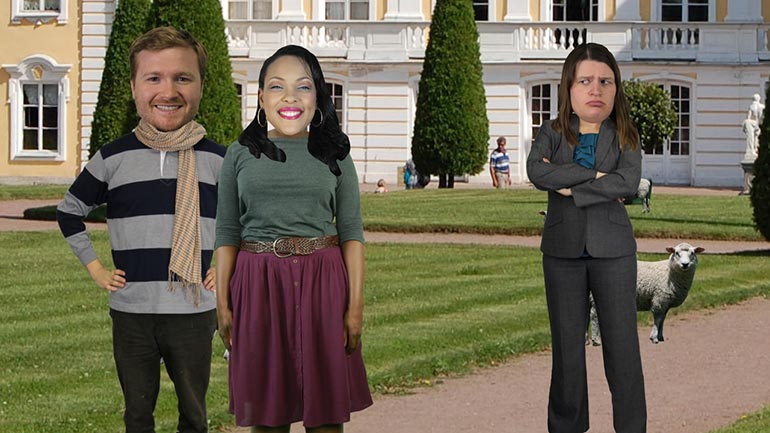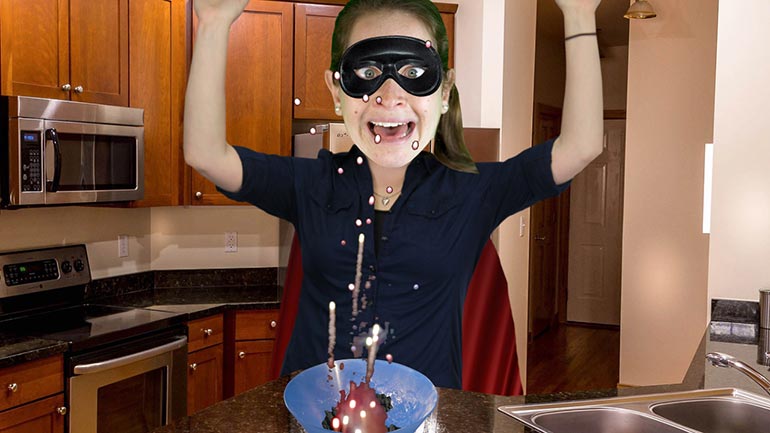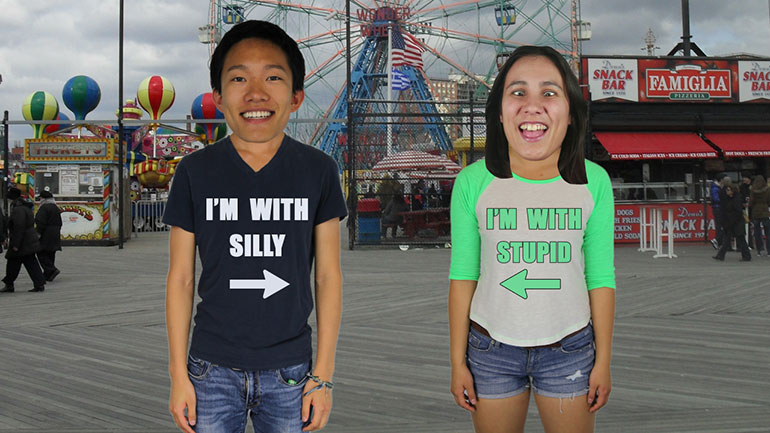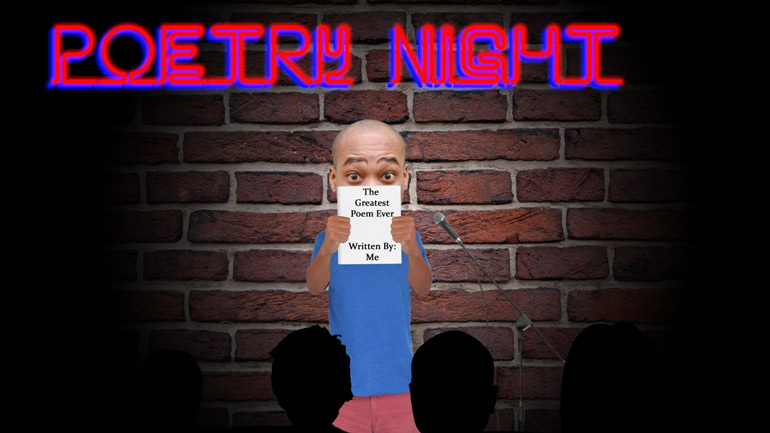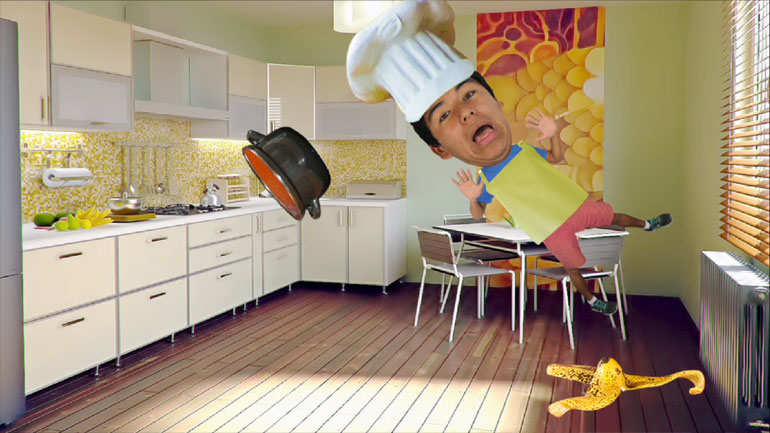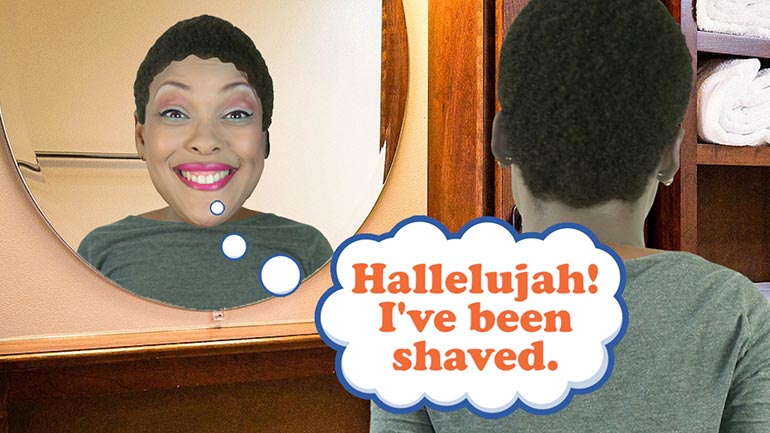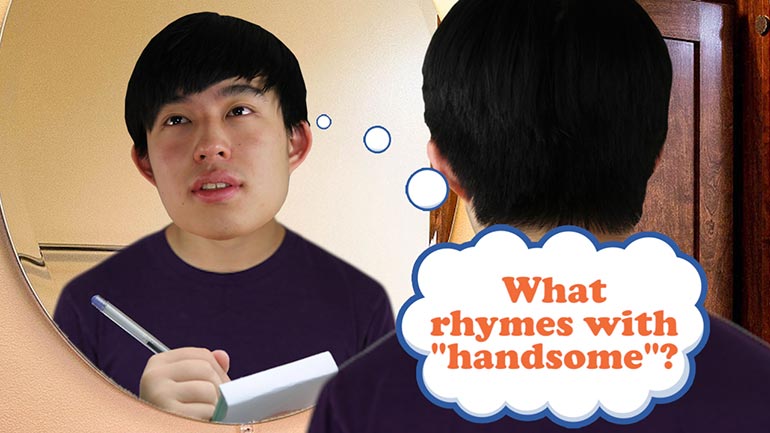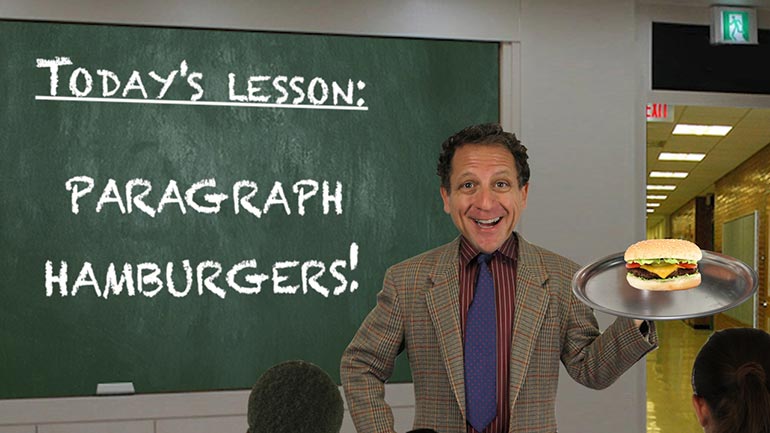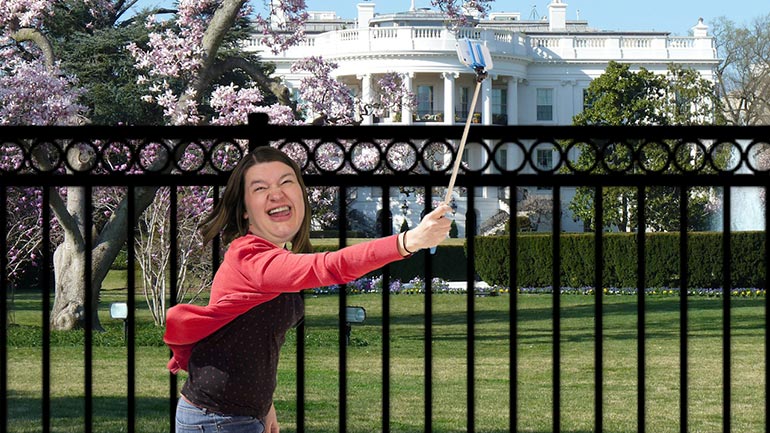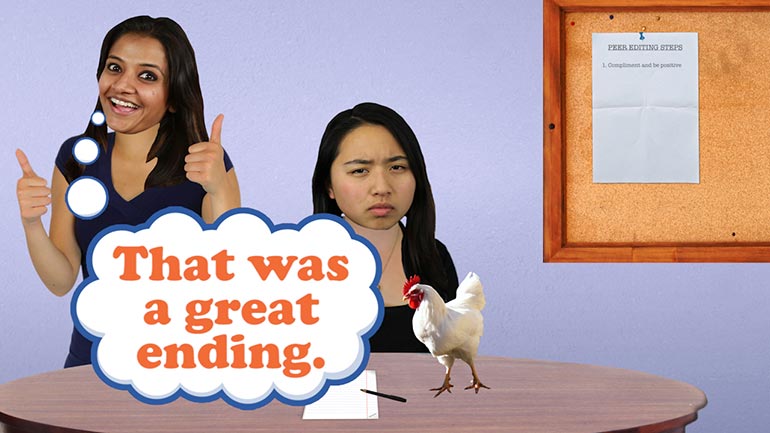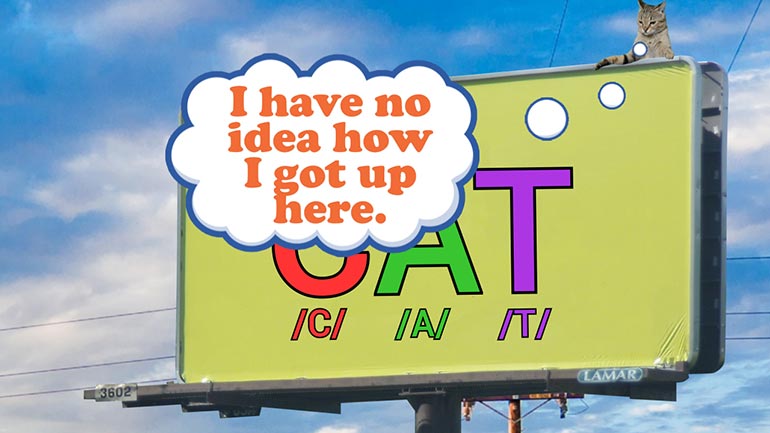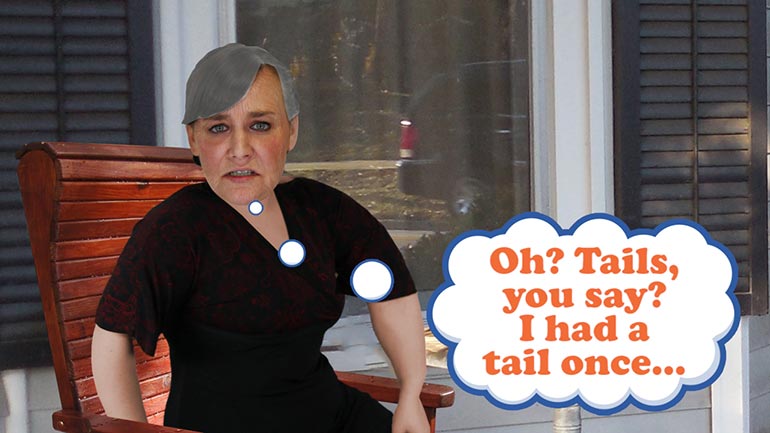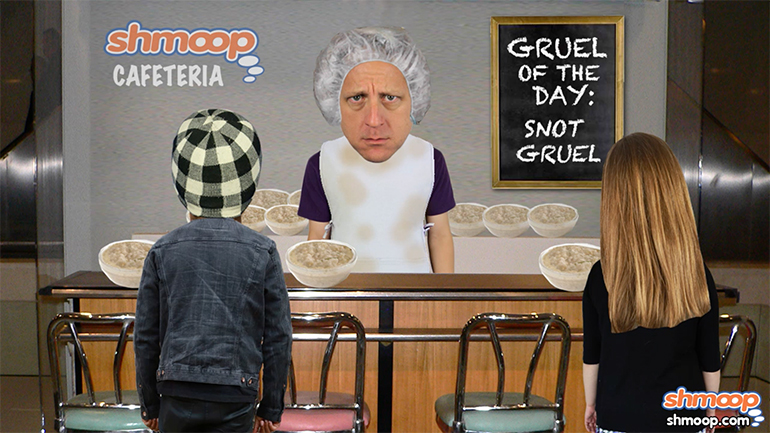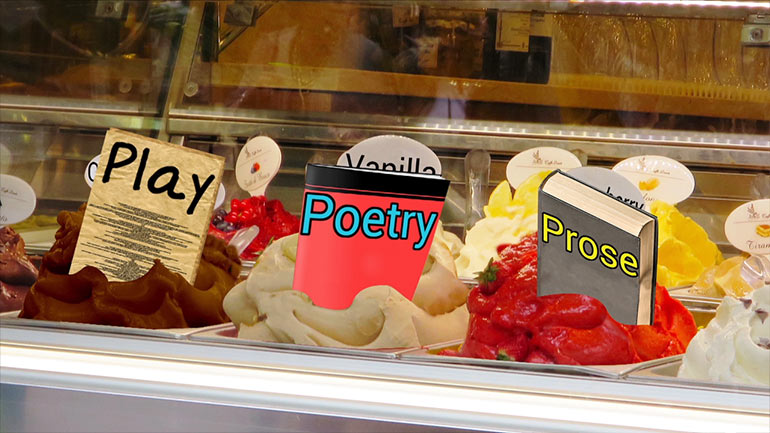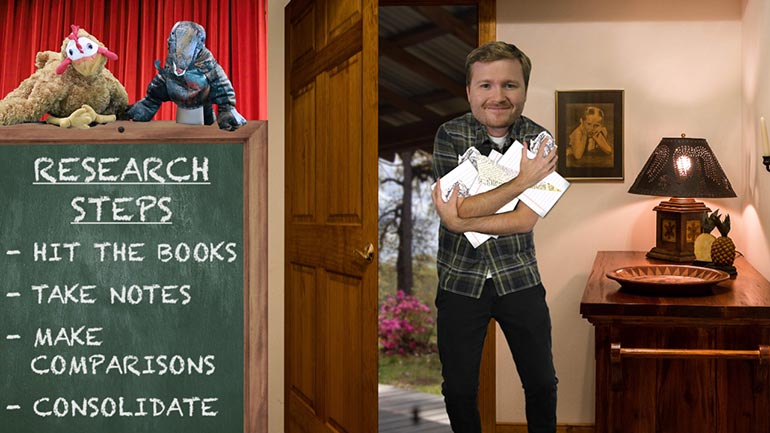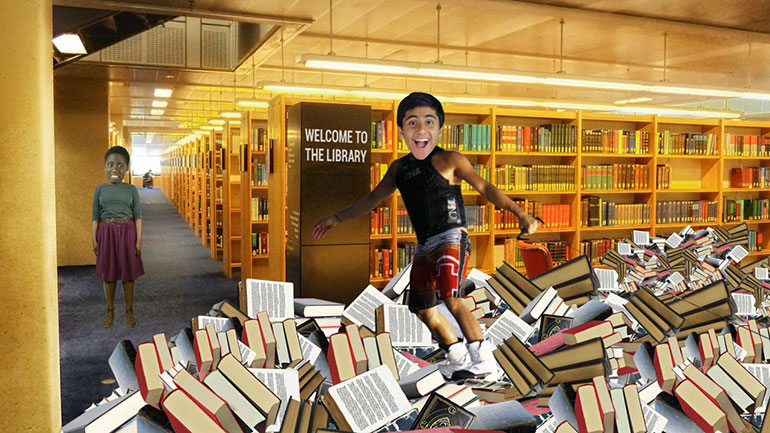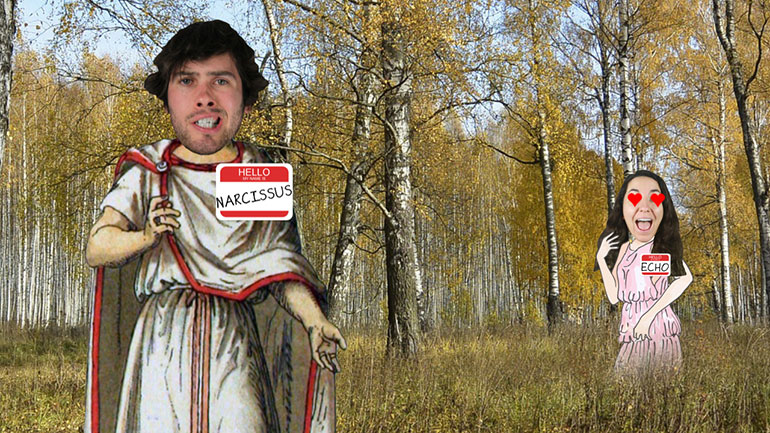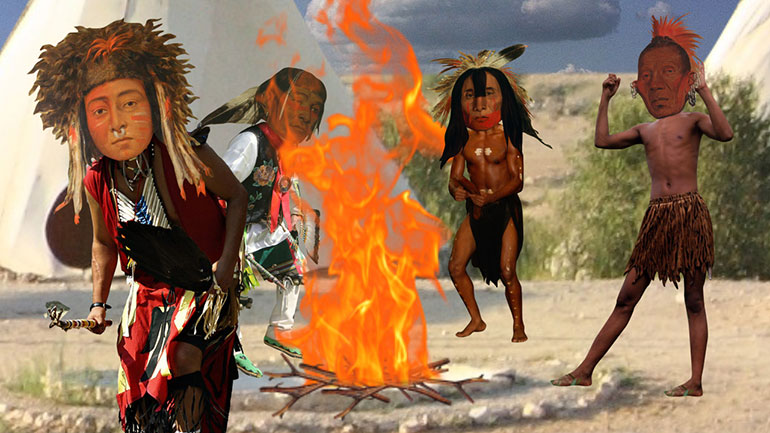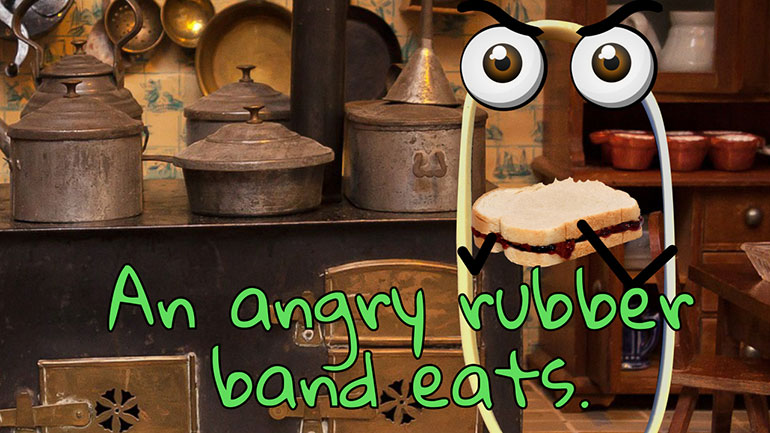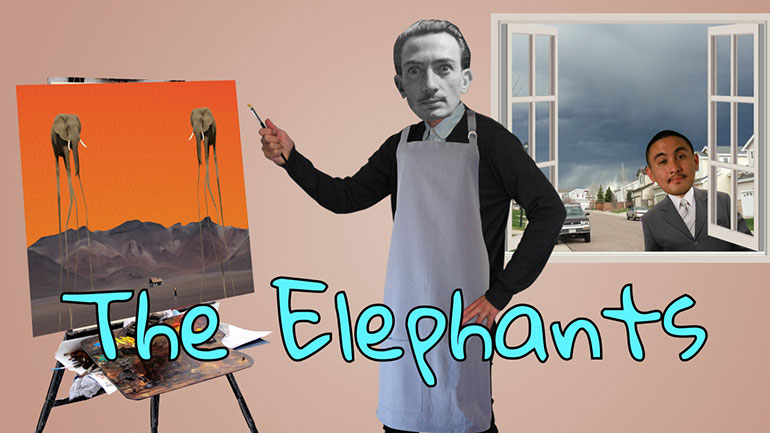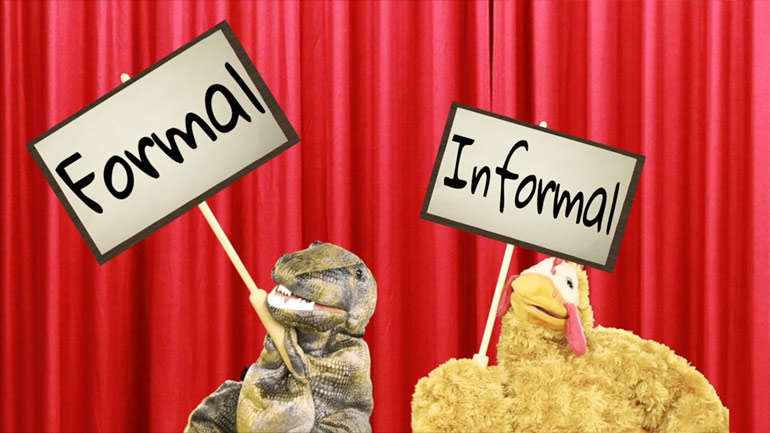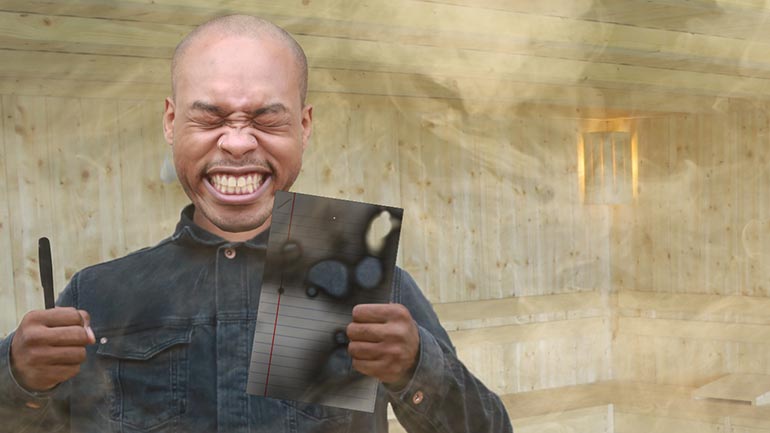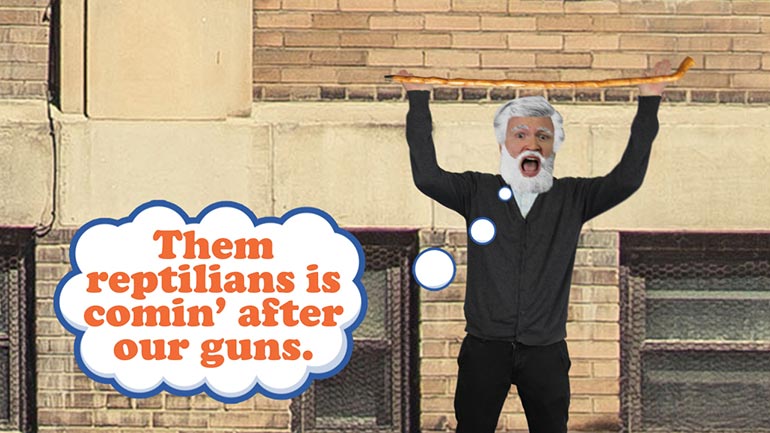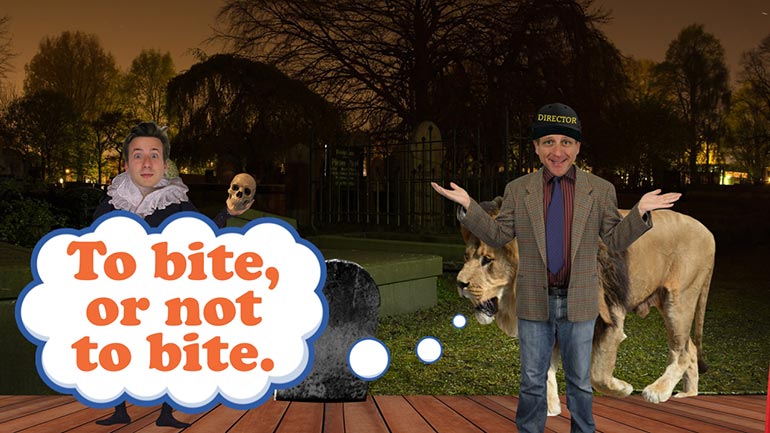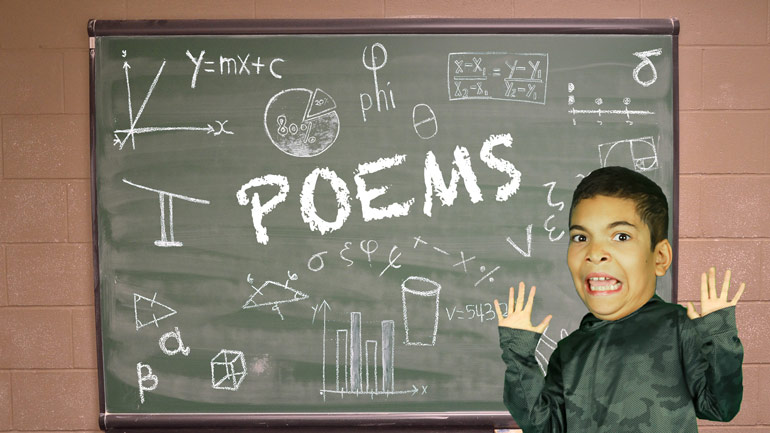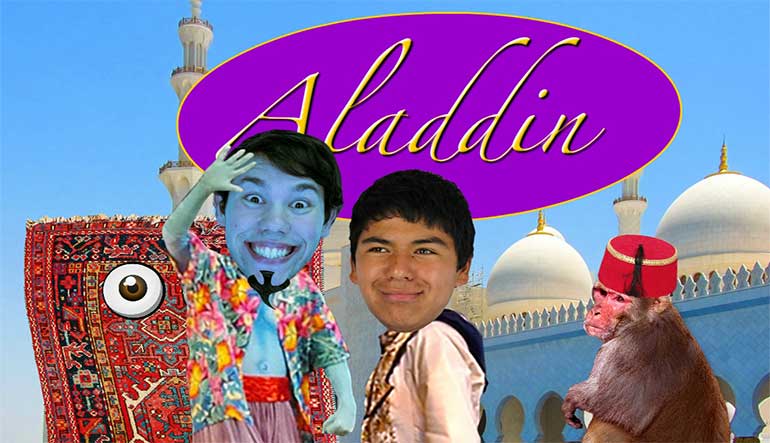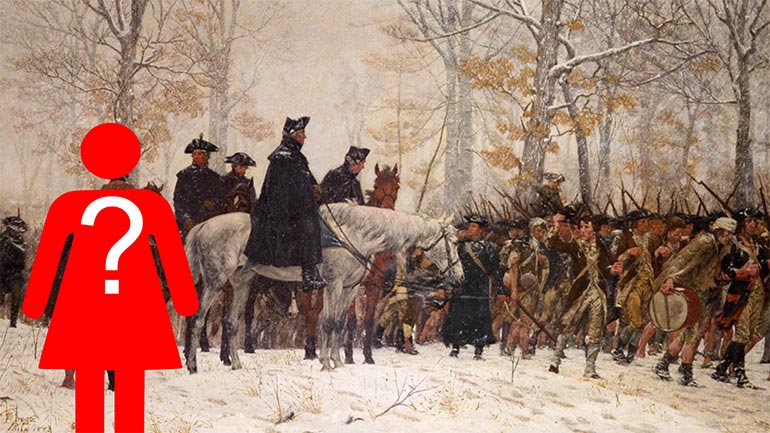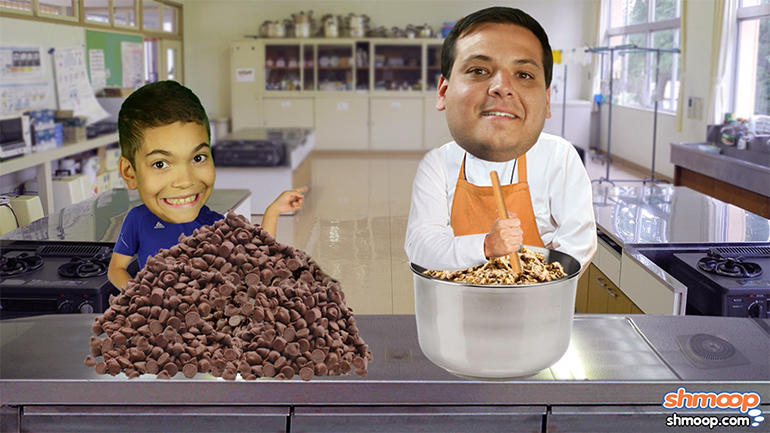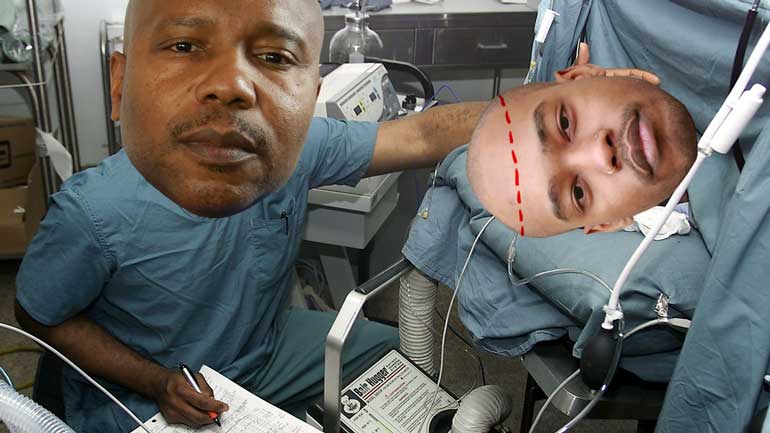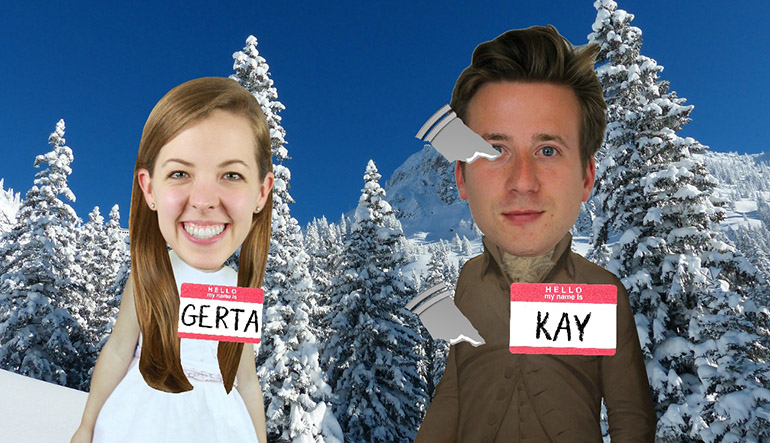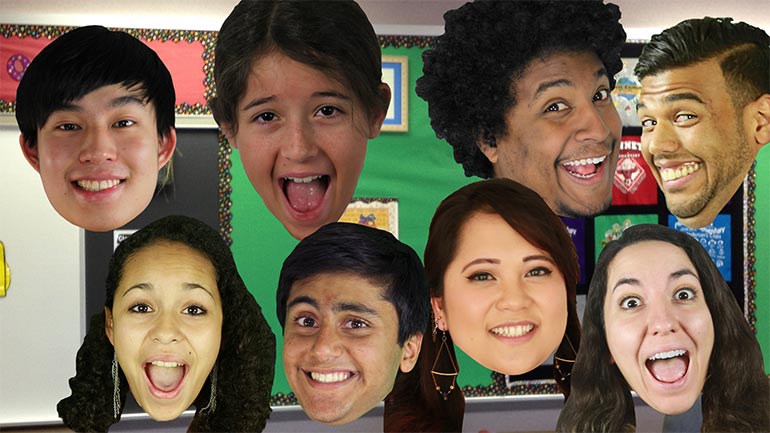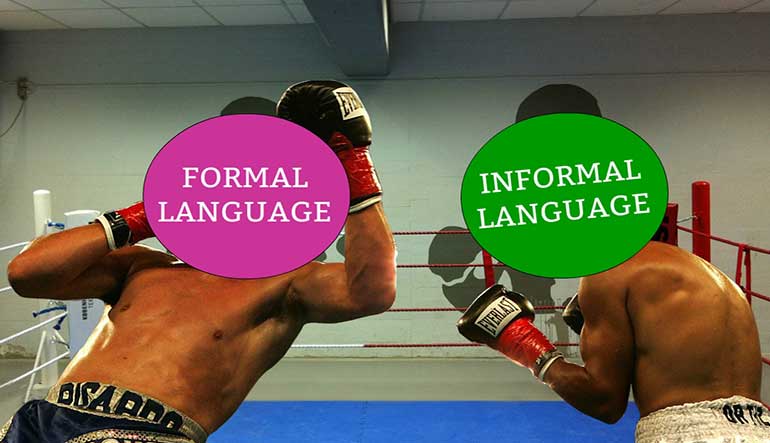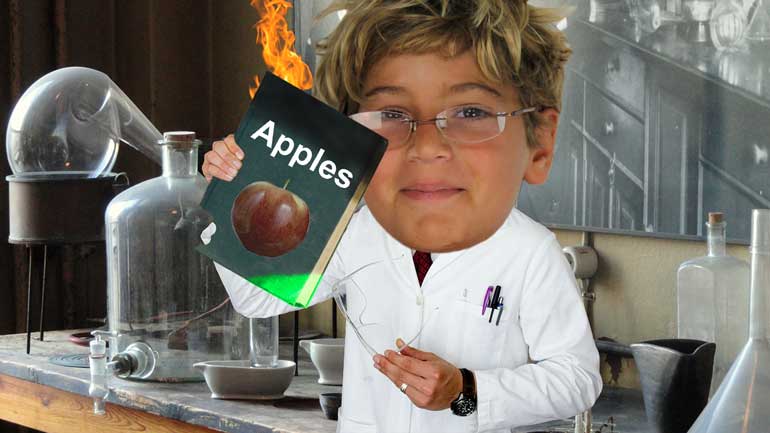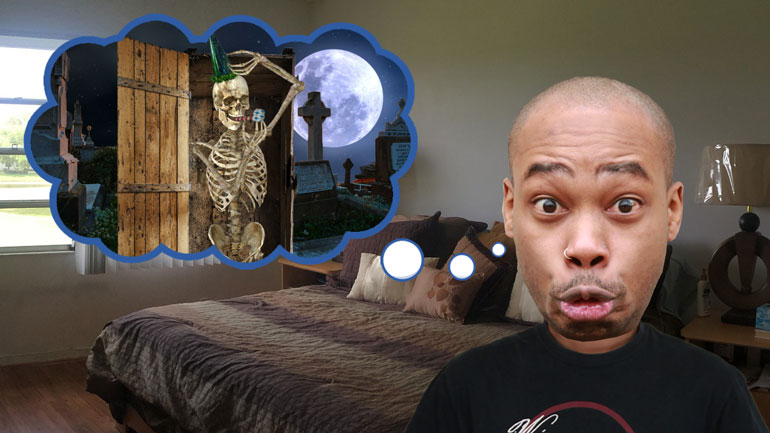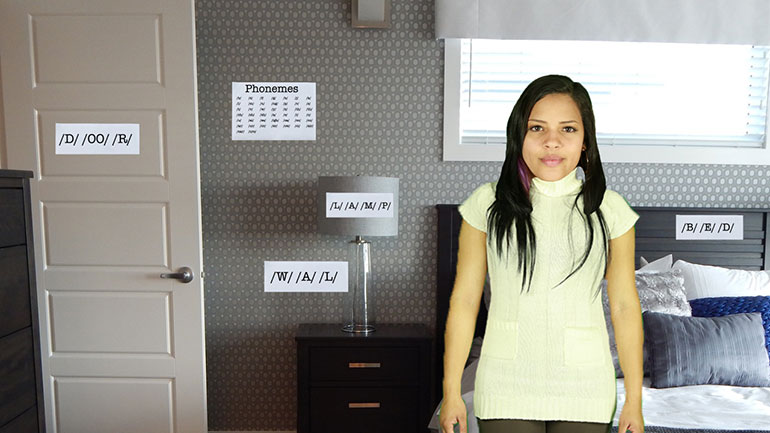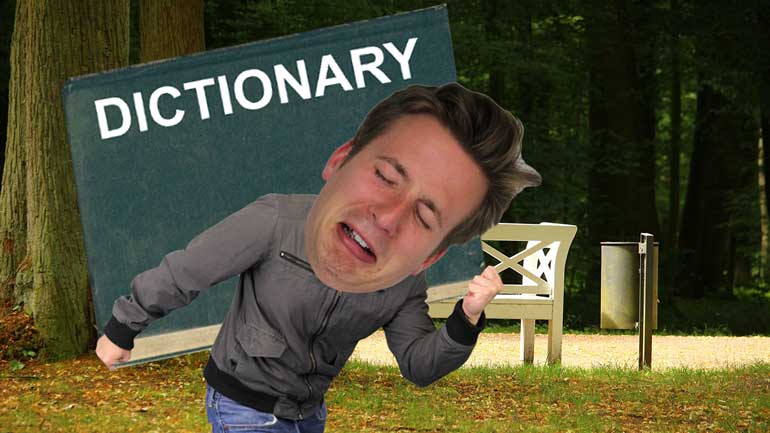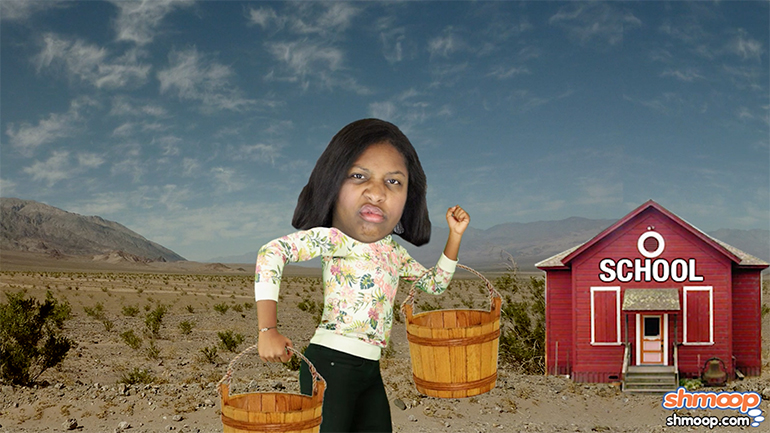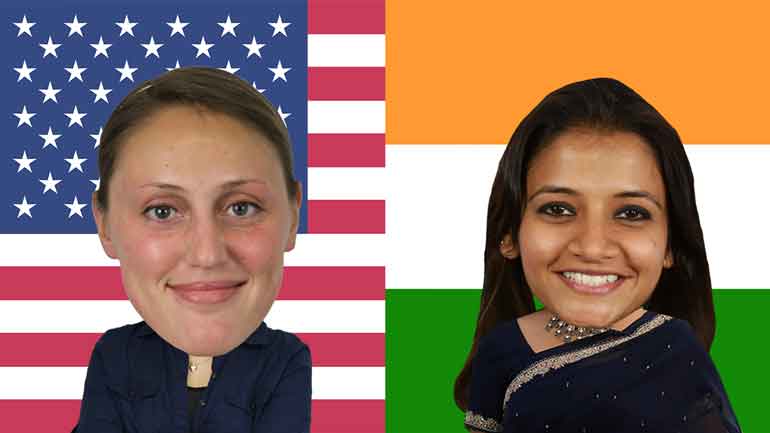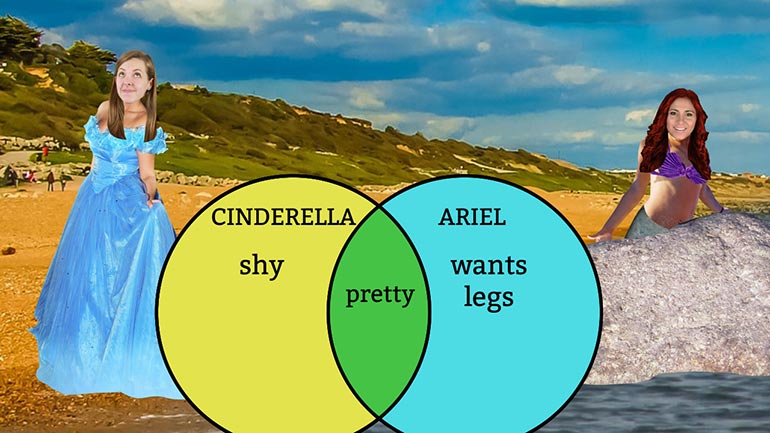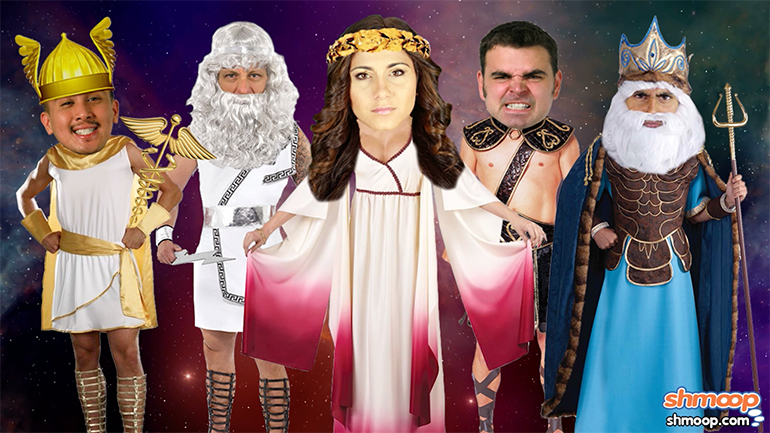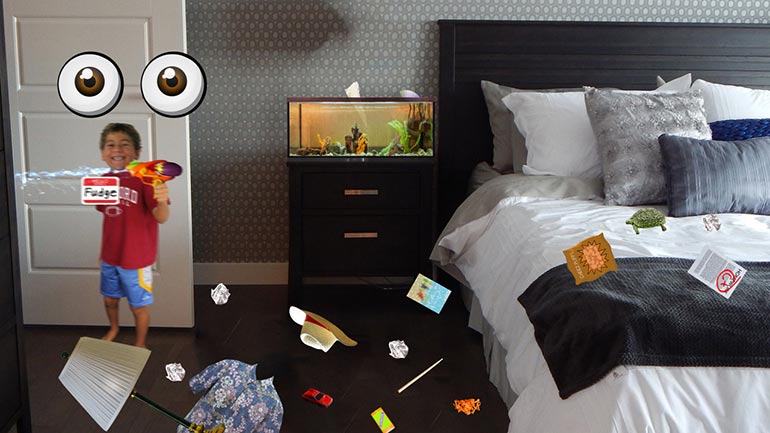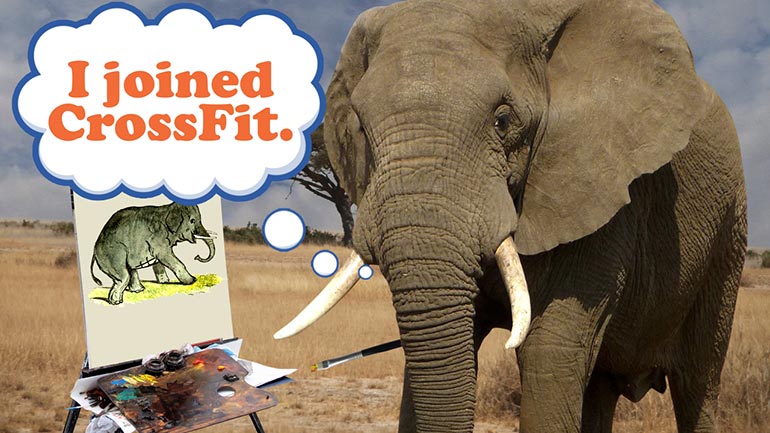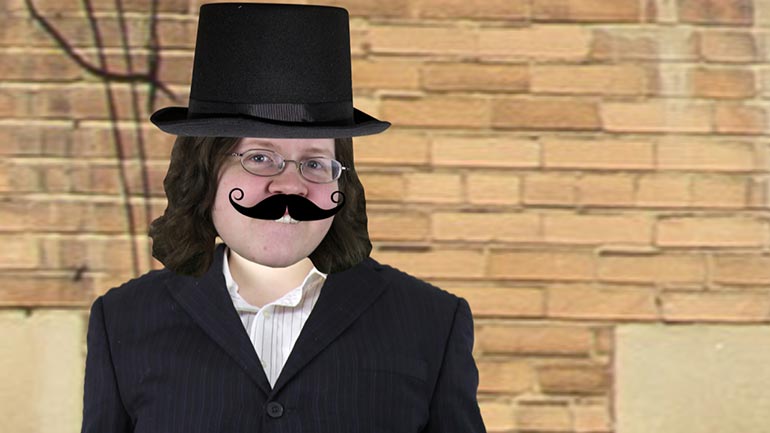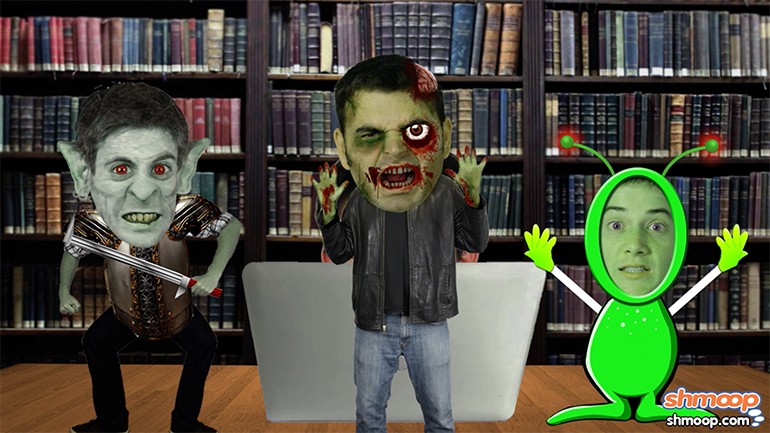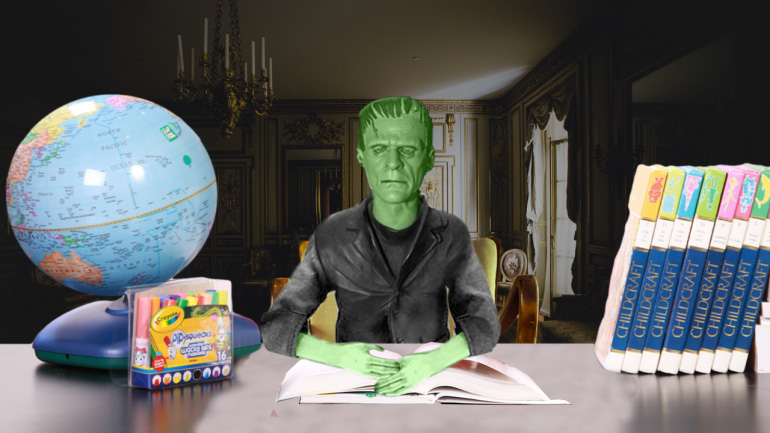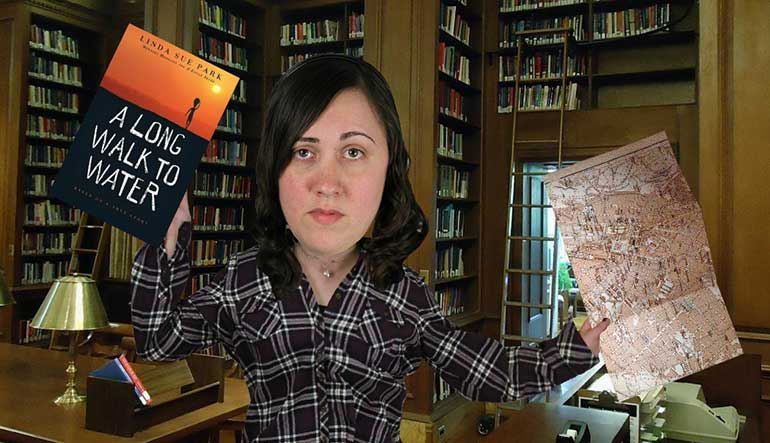ShmoopTube
Where Monty Python meets your 10th grade teacher.
Search Thousands of Shmoop Videos
Language Arts Videos 92 videos
In this lesson we'll subject you to some verbs and predicates. Each one is a necessary part of a complete breakfas—er...sentence.
Choosing words carefully is important. You may end up vexing the assemblage of citizens you're conversing with...or you might even just plain bore...
ELA 4: Love That Dog and How It’s a Narrative Poem 315 Views
Share It!
Description:
There are surprisingly few dogs in this video. Just a heads up. Instead we'll talk about poetry and what makes a narrative poem. You can always take to google images if you're having puppy withdrawals afterwards.
Transcript
- 00:04
[Coop and Dino singing]
- 00:13
“Love That Dog” by Sharon Creech. [Man reading Love That Dog]
- 00:15
It’s a novel about a boy named Jack and his dog Sky.
- 00:19
OR IS IT?
- 00:21
In many ways, “Love That Dog” is so much more than just a novel,
Full Transcript
- 00:24
because it's written as a poem. [hand swipes away novel]
- 00:26
And since it tells a story, we know that it's not just any poem, but a narrative poem.
- 00:31
In order to get a better idea about how this work is different from any other novel, how about
- 00:36
we look at the very first page of the book?
- 00:38
Now does that look like the start of a novel to you? Not quite. Mostly because it only
- 00:43
has a small handful of words on the entire page. [Arrow points to poem]
- 00:46
The publisher probably hated that.
- 00:50
“September 13
- 00:52
I don't want to because boys
- 00:54
don't write poetry.
- 00:55
Girls do.”
- 00:56
Okay, so what can we gather from this page? Well, it seems to be written from the perspective [Jack sitting down at a table]
- 01:00
of Jack, and it seems like he's writing in his journal about how he doesn't want to write
- 01:04
poetry, because apparently his teacher has asked him to.
- 01:07
That's quite a lot of information to be gathered from such a small number of words, isn’t it?
- 01:11
If we turn to the next page, what do we see? [Novel turns page]
- 01:14
“September 21
- 01:15
I tried. Can't do it.
- 01:17
Brain's empty.”
- 01:19
From this, we start to get the feeling that Jack isn't too happy. He seems frustrated [Jack stands up and walks away]
- 01:23
about his inability to come up with ideas for writing poetry.
- 01:26
He's upset that he tried and failed. Now we know even more about Jack and how he's feeling.
- 01:31
We’ve been there, felt that.
- 01:33
Let's try one more page.
- 01:34
“September 27
- 01:36
I don't understand the poem about
- 01:38
the red wheelbarrow and the white chickens
- 01:40
and why so much depends upon
- 01:42
them.
- 01:43
If that is a poem about the red wheelbarrow
- 01:45
and the white chickens then any words
- 01:47
can be a poem. You've just got to
- 01:49
make short
- 01:50
lines.”
- 01:51
Here, we can see that Jack is still frustrated, but appears to be analyzing and thinking about [Jack thinking about poems]
- 01:55
poems a bit more now.
- 01:57
In fact, he's decided that “anything” can be a poem if you write it in short lines,
- 02:01
and so he's written in short lines…
- 02:02
…showing us that he’s at least attempting to write his own poems. [Jack playing a guitar]
- 02:05
And that’s the power of poetry. With such little text, the author has been able to tell
- 02:10
us so much about what's going on and how Jack is feeling.
- 02:13
Even the spacing and line length tell us more about him and his inner struggle.
- 02:17
And it's definitely a narrative poem because it's telling a story.[Coop discussing narrative poems]
- 02:21
Even in three short pages, we have a beginning,
- 02:23
a middle, and an end – a small story within a larger one.
- 02:28
At the beginning, Jack is told to write a poem and doesn't want to. [Teacher approaches Jack and asks him to write a poem]
- 02:31
In the middle, he has tried but feels like he fails.
- 02:34
And finally, at the end, Jack has analyzed and studied poetry and figured out how he
- 02:38
might be able to do it, so he writes his own poem. Sorta kinda.
- 02:42
As you read the rest of the book, continue to think about how this style of narrative [Man reading book]
- 02:46
poetry tells a story and reveals the plot.
- 02:48
But also keep in mind that narrative poetry can show us characters' emotions and feelings,
- 02:53
and explore thoughts, themes, ideas, and different perspectives.
- 02:56
Oh, and while you're looking for all of that, don't forget to enjoy reading it, too! [Waiter serving Love That Dog poem]
- 03:00
Sorry. We know we just put a lot on your plate.
Related Videos
Sticks and stones, right? Well...only sometimes. It's a good idea to make sure your words aren't going to hurt others. Let's look at some ways to d...
Learn to debate like a champ. It's way better than debating like a chimp. That just takes mudslinging to a whole new level.
Today we'll learn about biographies and autobiographies. And no, the second one has nothing to do with the lives of cars.
In this lesson we'll subject you to some verbs and predicates. Each one is a necessary part of a complete breakfas—er...sentence.
Choosing words carefully is important. You may end up vexing the assemblage of citizens you're conversing with...or you might even just plain bore...

